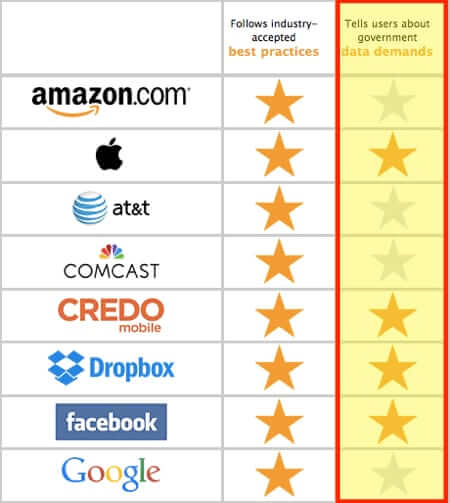Tag: ecpa
U.S. House of Representatives Passes Email Privacy Act
For more than four years we have been telling you that law enforcement can get to any electronic communications you have stored for more than 180 days in the cloud (and that ‘cloud’ is just a fancy word for “somebody else’s computer”). This is because the Electronics Communication Privacy Act (ECPA) only requires a subpoena in order for a governmental agency to get at those communications records that you have stored on that third-party server – they do not need a warrant.
Google Releases Transparency Report Which Shows More Government Surveillance
Today Google posted some news on their blog, along with the release of their Transparency Report, which shows increasing requests from the government for private user data. In fact, the report shows that, of all the governments in the world, the U.S. leads the pack in personal information requests.
Senator Patrick Leahy and the ECPA Privacy Amendment That Proposed Only a Subpeona, With a Warrant Not Required, to Search Private Email
Update: We have just learned that Senator Leahy has withdrawn his support for the amendments to the Electronic Communications Privacy Act (ECPA). He received resounding criticism from many groups and private citizens who felt that the revisions are unconstitutional and a gross invasion of privacy. In a series of tweets, below, Senator Leahy said that he did not support the bill amendments, and seems to deny that he ever did.
No Warrant Necessary for Law Enforcement to Access Data Stored in the Cloud
With the recent decision in the Fricosu case, ruling that one can be forced to provide the password to your encrypted hard drive, you may be thinking it is better to store things “in the cloud”. In fact, it can be worse, as cloud storage currently requires no warrant for law enforcement to access any of your data which has been stored in the cloud for at least 180 days.





